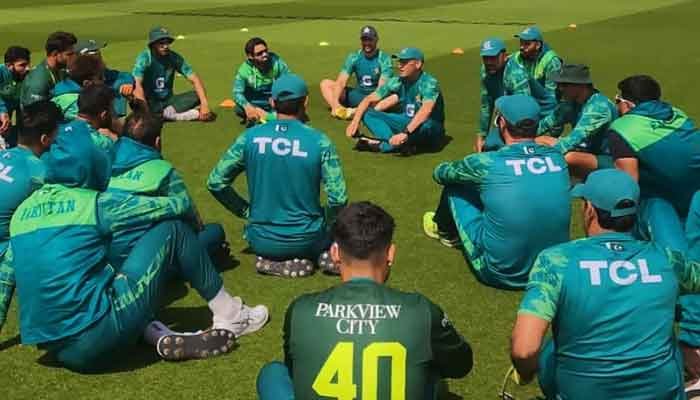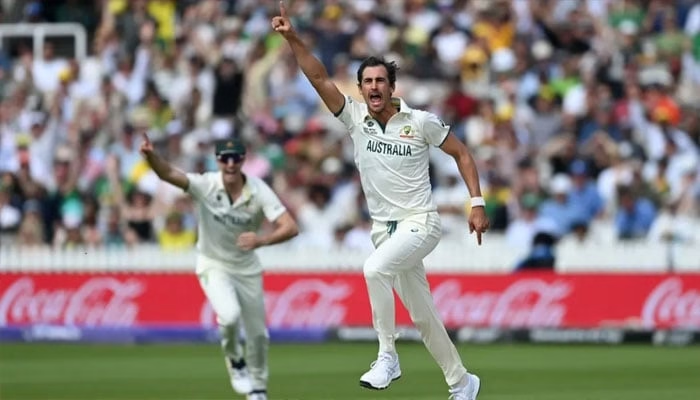The Pakistan cricket team and its management have embarked on their journey back to Pakistan from Miami, following a disappointing performance in recent international fixtures. The atmosphere within the team is reportedly tense, with players and officials reflecting on their underwhelming campaign.
Internal Strife and Concerns
Before departing from Florida, a key player of the national team, speaking to Geo News on the condition of anonymity, provided an insider’s perspective on the current state of the team. “The team played badly, and everyone is feeling the heat after the World Cup,” the player confessed. He revealed that the players are anxious about their future in the squad, emphasizing the need for decisions to be made based on merit. “There should be accountability, but it should be done with honesty,” he insisted, calling for a transparent evaluation process.
Communication Gaps and Team Dynamics
In the dressing room, led by coach Gary Kirsten, there appears to be a disconnect regarding the team’s unity and collective spirit. The anonymous player remarked that he could comprehend enough English to understand the coach’s discussions. However, Kirsten’s focus on fitness and future plans seemed to overlook critical aspects of team cohesion and unity. This gap in addressing the internal dynamics may have contributed to the lackluster performances on the field.
Criticisms and Suggestions
The team’s struggles have not gone unnoticed by former players and cricket analysts. Former Test cricketer Sikandar Bakht has been vocal in his criticism of current captain Babar Azam. In his analysis, Bakht suggested that Babar should consider stepping down from his leadership role voluntarily before the cricket board makes the decision for him. “No one knows which shot to play when, and there is no unity in the team,” Bakht quoted Gary Kirsten’s frustration with the team’s disarray.
Bakht’s advice to Babar stems from the belief that a proactive resignation could preserve the captain’s dignity and potentially allow for a smoother transition in leadership. This suggestion highlights the broader issue of leadership and its impact on team performance.
Reflecting on Past and Future
As the team returns home, the focus shifts to evaluating their recent performances and planning for future engagements. The anonymous player’s call for merit-based decisions and honest accountability reflects a desire for a systematic approach to addressing the team’s issues. Ensuring that players are selected and retained based on performance rather than favoritism is crucial for rebuilding confidence within the squad.
The management’s role in fostering team unity and effective communication cannot be understated. Gary Kirsten’s emphasis on fitness and planning, while essential, needs to be complemented by efforts to build a cohesive and motivated team. Addressing language barriers and cultural differences within the team can enhance understanding and collaboration among players and staff.
The Path Forward
The Pakistan cricket team’s recent struggles serve as a reminder of the challenges inherent in maintaining a competitive and harmonious squad. As the team management and cricket board undertake a post-mortem of the World Cup campaign, they must consider both immediate and long-term strategies to revitalize the team.
Key areas of focus should include:
Merit-Based Selection: Ensuring that team selection is transparent and based on players’ performances and potential.
Leadership: Evaluating the effectiveness of current leadership and considering changes if necessary to inspire and unify the team.
Communication and Unity: Implementing measures to improve communication within the team, addressing any cultural or language barriers, and fostering a strong sense of camaraderie.
Fitness and Preparation: Continuing to prioritize fitness and strategic planning, while also integrating team-building activities and psychological support.
The journey from Miami to Pakistan marks not just a physical return but a moment of introspection for the national cricket team. With calls for accountability, merit-based decisions, and potential changes in leadership, the team stands at a crossroads. The actions taken in the coming weeks and months will be critical in shaping the future of Pakistan cricket, determining whether the team can emerge stronger and more united from this period of adversity.



